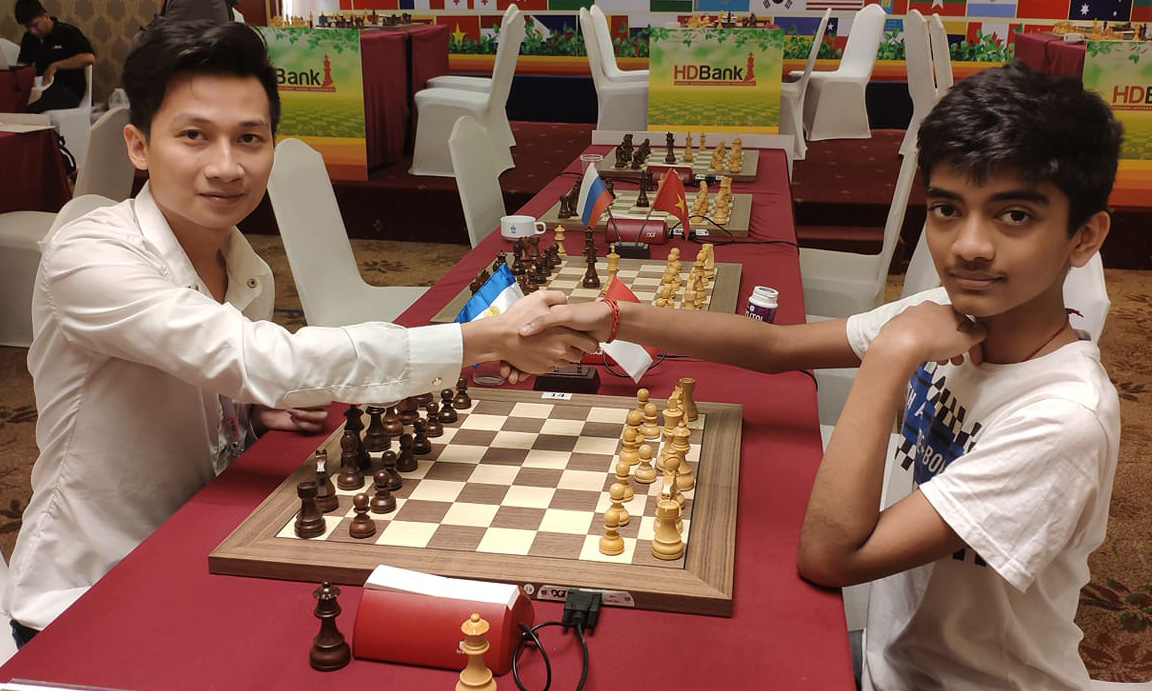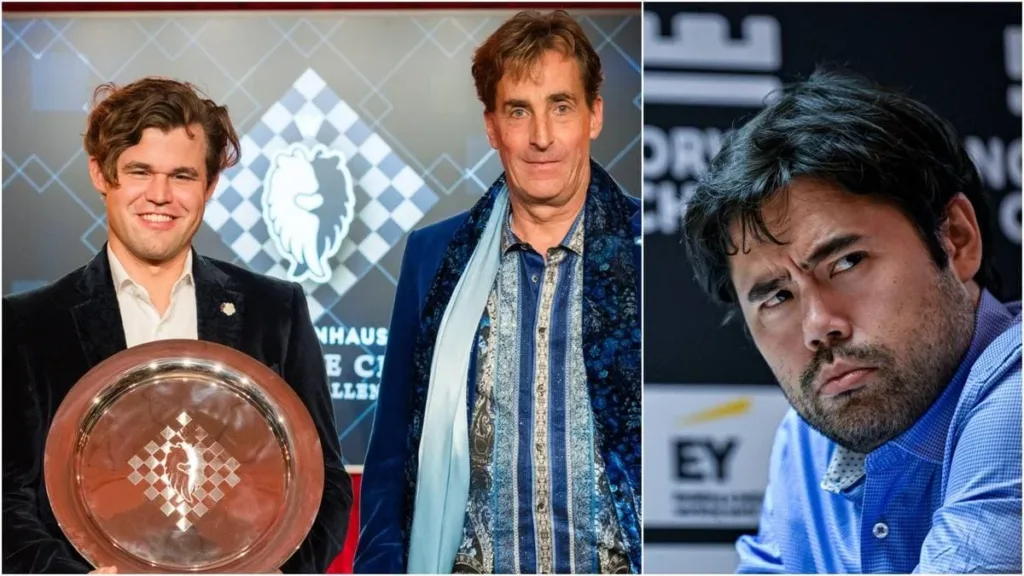Hikaru Nakamura is no stranger to controversy. As one of the most followed chess personalities in the world and a top-tier grandmaster, he’s always had a knack for staying in the spotlight, whether through his aggressive over-the-board play, his massive online presence, or his candid commentary on the state of modern chess. But his evolving relationship with Freestyle Chess, the rebranded face of Chess960, may be his most complex storyline yet.
The Freestyle Chess Grand Slam Tour, backed by former World Champion Magnus Carlsen and investor Jan Henric Buettner, has rapidly grown into one of the most high-profile ventures in the chess world. Combining randomized starting positions with elite competition, substantial prize pools, and a jet-setting calendar, Freestyle Chess has positioned itself as both a sporting revolution and a media spectacle. But amidst all the hype, Nakamura has emerged as a vocal – and at times, skeptical – critic of the format and its execution.
Related: Hikaru Nakamura Exposes Major Flaws in “Freestyle Chess” Las Vegas Tournament
From Participant to Provocateur
Nakamura’s results on the Freestyle circuit have been solid but not dominant. He placed fifth in the inaugural event in Wangels and improved to a runner-up finish behind Carlsen in Paris. In Las Vegas, he finished fourth after a contentious knockout run. Yet beyond the results, it’s his public commentary that has turned heads.
In various streams and interviews, Nakamura has expressed dissatisfaction with multiple aspects of the tour, from the accelerated time controls and rigid schedule changes to the commentary duties imposed on eliminated players, under threat of reduced prize money. He’s also openly questioned the legitimacy of declaring a “Freestyle Chess Champion” without broader institutional support, a clear jab at the FCPC’s 2025 decision to title the Grand Slam winner as such, independent of FIDE recognition.
While not alone in his critiques, Nakamura has perhaps been the most vocal high-profile figure to suggest that Freestyle Chess, for all its innovation, is navigating uncertain terrain.
A Clash of Visions
At the heart of this tension lies a philosophical divide between Nakamura and Carlsen – longtime rivals both on and off the board. Carlsen, who has all but abandoned traditional championship cycles, sees Freestyle Chess as a liberation from the rigidity of opening preparation and bureaucratic politics. He believes randomness at the start revives creativity and levels the playing field.
Nakamura, while no slave to classical orthodoxy himself, has voiced concerns that the Freestyle model can devolve into chaos without a strong foundational structure. He’s criticized the shift away from classical time controls and hinted that the rapidly evolving format is being shaped more by marketing interests than chess logic.
Their dynamic was on full display during the Paris Grand Slam, where Nakamura and Carlsen clashed in the final. Though Carlsen emerged victorious, the post-event interviews underscored differing priorities. Carlsen spoke of “redefining what elite chess looks like,” while Nakamura dryly noted, “If we change the rules every event, it’s hard to know what we’re playing for.”
Is the Rift Personal or Philosophical?
It’s tempting to frame the story as personal friction, and there may be some truth to that. Nakamura and Carlsen have a long history of needling one another, both in games and in media. But the deeper issues seem more systemic.
Freestyle Chess, with its $12 million investment from Left Lane Capital and growing global presence, is becoming a gravitational force in the chess world. Its decentralized, player-driven ethos appeals to many, but also exposes fault lines: between tradition and experimentation, between showmanship and substance, and between centralized governance (FIDE) and independent ventures.
Nakamura’s criticism, then, may not be opposition so much as caution – a reminder that innovation must be tempered with stability. That warning echoes more loudly amid the tour’s shifting formats, canceled events (like Delhi), and its ongoing turf war with FIDE over world championship recognition.
For context, Jan Henric Buettner recently responded to Nakamura’s criticism, emphasizing the tour’s need to evolve without becoming rigid.
Healthy Debate or Brewing Schism?
So, is this Nakamura vs. Freestyle Chess, or Nakamura as a reluctant reformer within it?
Despite his complaints, he remains an active participant, and his presence undeniably boosts the tour’s profile. It’s clear he believes in the potential of Chess960 as a concept. What he seems to challenge is how it’s being rolled out, perhaps too fast, too loose, and too top-down despite its democratic veneer.
The chess world has seen major splits beforem most famously in 1993, when Garry Kasparov and Nigel Short broke from FIDE to create the PCA. That division took over a decade to repair. The hope is that today’s debates, however pointed, lead to a better, more unified structure for Chess960 and beyond.
Meanwhile, Levon Aronian’s Las Vegas victory showed that despite the backstage turbulence, the chess on the board can still shine.
In that light, Nakamura’s dissent may not signal a rift, but rather the growing pains of a movement that is still defining itself. And if Freestyle Chess is to thrive, it will need voices like his, not silenced, but heard, challenged, and integrated.
As with any ambitious project, dissent isn’t the enemy. It’s part of the process.
Author’s Note: Hikaru Nakamura has not officially withdrawn from any Freestyle event and remains a contender for the 2025 Grand Slam title.
Update on Aug 5th: He did now.. His criticisms reflect broader tensions that may ultimately shape the future of chess itself, freestyle or not.

I’m Xuan Binh, the founder of Attacking Chess, and the Deputy Head of Communications at the Vietnam Chess Federation (VCF). My chess.com and lichess rating is above 2300. Send me a challenge or message via Lichess. Follow me on Twitter (X) or Facebook.

